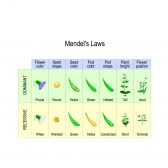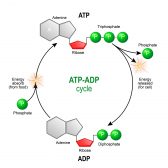Definition
noun
A form of digestion wherein the breaking down of materials into smaller, absorbable components takes place outside the cell.
Supplement
In extracellular digestion, the materials or food particles are broken down chemically into smaller components outside the cell or onto the digestive system spaces.
For example, fungi feed on their food by secreting digestive enzymes to digest their food externally, which they later absorb. In mammals, the process takes place within the lumen of the digestive system.
Word origin: extracellular + digestion
Compare: intracellular digestion
Dictionary > Extracellular digestion
You will also like...

Plant Water Regulation
Plants need to regulate water in order to stay upright and structurally stable. Find out the different evolutionary adap..

Genetics – Lesson Outline & Worksheets
Topics Modules Quizzes/Worksheets Description Introduction to Genetics Genetics – Definition: Heredity and ..

Mendel’s Law & Mendelian Genetics
One of Mendel’s law of inheritance is the “law of dominance”. Read this tutorial to know more about this form of i..

Fruits, Flowers, and Seeds
This tutorial deals with the structure and function of flowers, fruits, and seeds. Also included here are the types of f..

ATP & ADP – Biological Energy
ATP is the energy source that is typically used by an organism in its daily activities. The name is based on its structu..

Still Freshwater & Plants
Plants in lentic habitats have features not found in terrestrial plants. They acquired these features as they adapt to t..
